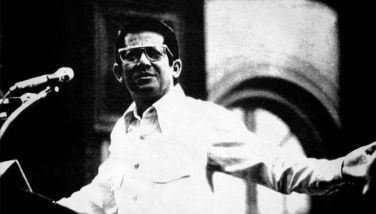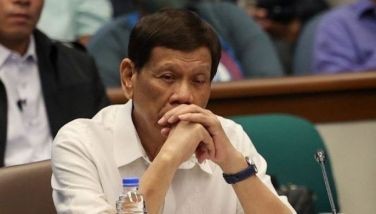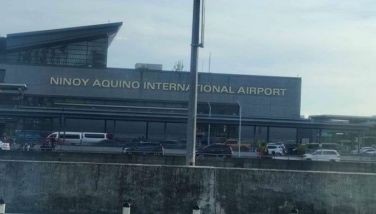Banks sell P31B worth of bad assets under SPVA
February 8, 2007 | 12:00am
After a snag following the extension of the Special Purpose Vehicles Act (SPVA), banks have disposed of P31 billion worth of bad assets so far, the Bangko Sentral ng Pilipinas (BSP) said yesterday.
The BSP said the banking industry has shifted to high gear its sale of bad assets, and officials expect the sale of P51 billion more in the coming months.
BSP Governor Amando M. Tetangco Jr. said there are over P51 billion more non-performing assets in the pipeline, waiting for the approval of the central bank.
Since its last report in January when only P28.5 billion had been moved, Tetangco said the total amount has expanded and reach-ed P31 billion.
Tetangco said the BSP estimates that about P100 billion worth of non-performing assets would be unloaded under the SPVA until it expires in another two years.
Tetangco said he was informed that banks intend to sell bad assets amounting to P62.7 billion. If these assets are actually brought out for sale, total SPVA transactions could amount to P85 billion, representing 85 percent of the total target.
In a survey, the BSP asked banks exactly how much NPAs they intend to unload under the SPVA this year. These include assets that have been earmarked for unloading though not applied for incentives.
Despite criticisms, the BSP said it is more than satisfied with the progress being made by banks in cleaning up their loan portfolio while under pressure to build up capital.
BSP deputy governor Nestor Espenilla Jr. said earlier that it was understandable for Philippine banks to take longer to recover from the 1997 Asian crisis especially since, unlike other countries, the government did not take a direct hand in rescuing the banking industry.
"Our government does not have the resources to take a direct bail-out of banks so our banks have had to do this all on their own, often from internally-generated funds," Espenilla said.
According to Espenilla, banks have had to contend with the capital impact of cleaning up the deadwood from their loan portfolio while at the same time building up capital to deal with the impact of complying with the provisions of the Basel II Convention.
"We have to appreciate the magnitude of the effort that the industry has been exerting," Espenilla said. "They have undertaken an overall clean-up and increase in provisioning, building up capital from internally-generated funds," he said. "The overall impact has been to strengthen their balance sheet but it also had the effect of narrowing down their profit margin in the meantime."
Espenilla said that since the industry was not homogenous, the pace of compliance could not be expected to be uniform. "Some banks have no problem complying, others have to catch up," he said.
The BSP said the banking industry has shifted to high gear its sale of bad assets, and officials expect the sale of P51 billion more in the coming months.
BSP Governor Amando M. Tetangco Jr. said there are over P51 billion more non-performing assets in the pipeline, waiting for the approval of the central bank.
Since its last report in January when only P28.5 billion had been moved, Tetangco said the total amount has expanded and reach-ed P31 billion.
Tetangco said the BSP estimates that about P100 billion worth of non-performing assets would be unloaded under the SPVA until it expires in another two years.
Tetangco said he was informed that banks intend to sell bad assets amounting to P62.7 billion. If these assets are actually brought out for sale, total SPVA transactions could amount to P85 billion, representing 85 percent of the total target.
In a survey, the BSP asked banks exactly how much NPAs they intend to unload under the SPVA this year. These include assets that have been earmarked for unloading though not applied for incentives.
Despite criticisms, the BSP said it is more than satisfied with the progress being made by banks in cleaning up their loan portfolio while under pressure to build up capital.
BSP deputy governor Nestor Espenilla Jr. said earlier that it was understandable for Philippine banks to take longer to recover from the 1997 Asian crisis especially since, unlike other countries, the government did not take a direct hand in rescuing the banking industry.
"Our government does not have the resources to take a direct bail-out of banks so our banks have had to do this all on their own, often from internally-generated funds," Espenilla said.
According to Espenilla, banks have had to contend with the capital impact of cleaning up the deadwood from their loan portfolio while at the same time building up capital to deal with the impact of complying with the provisions of the Basel II Convention.
"We have to appreciate the magnitude of the effort that the industry has been exerting," Espenilla said. "They have undertaken an overall clean-up and increase in provisioning, building up capital from internally-generated funds," he said. "The overall impact has been to strengthen their balance sheet but it also had the effect of narrowing down their profit margin in the meantime."
Espenilla said that since the industry was not homogenous, the pace of compliance could not be expected to be uniform. "Some banks have no problem complying, others have to catch up," he said.
BrandSpace Articles
<
>
- Latest
- Trending
Trending
Latest
Trending
Latest
Recommended

























